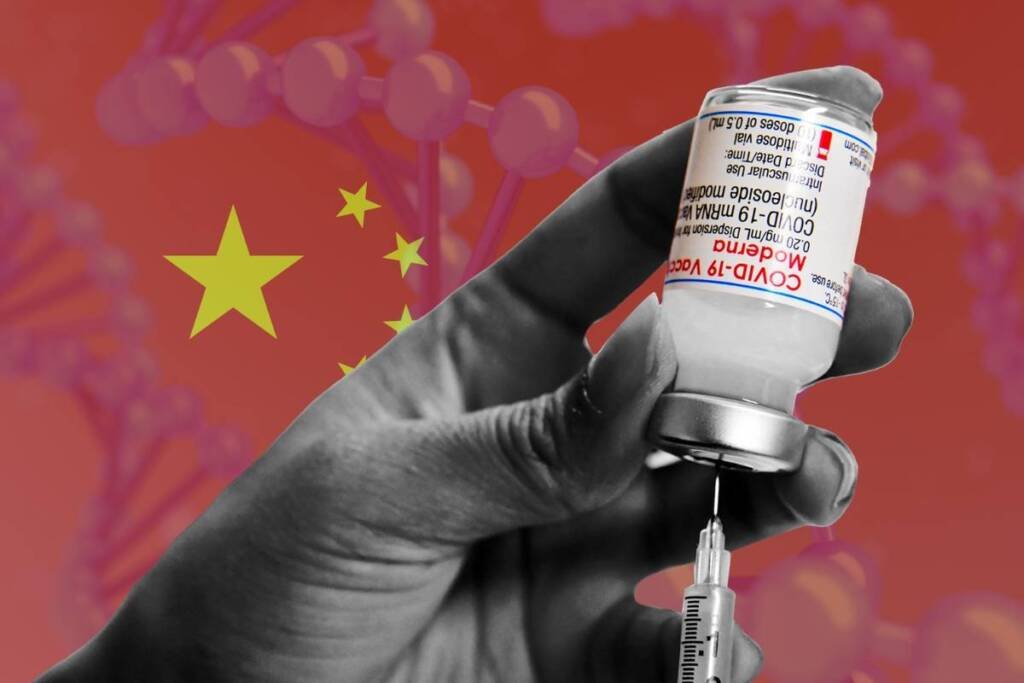Despite ongoing political tensions between the United States and China, foreign investments in the pharmaceutical sector are progressing in China. Moderna, the renowned mRNA company, is now entering the scene as the Commerce Minister of China signals potential development opportunities for Western firms in the country.
Moderna has signed a memorandum of understanding and a land collaboration agreement in a deal that could be valued at up to $1 billion. The agreements aim to identify opportunities for researching, developing, and manufacturing mRNA medicines in China. Moderna has clarified that any medicines produced under this agreement will be exclusively for the Chinese population and will not be exported.
“With this announcement, we are taking further steps to deliver on our mission of creating the greatest possible impact to people through mRNA medicines.”
– Moderna
Moderna’s CEO, Stéphane Bancel, arrived in Shanghai for a signing ceremony related to the investment. In May, Moderna established a biotechnology unit, known as Moderna Biotech China, in Shanghai’s Minhang district. This unit is controlled by Moderna’s UK biotech arm. Bancel had previously expressed intentions to increase investments in Shanghai and collaborate with Chinese partners on research, development, and production.
Amidst issues such as intellectual property theft, advanced technology, and Taiwan, pharmaceutical collaborations have served as a diplomatic bridge between China and the US. This week, China’s Commerce Minister, Wang Wentao, assured foreign drugmakers at a roundtable discussion that they can anticipate more development opportunities within the country. The meeting included participation from pharmaceutical giants such as AstraZeneca, Bayer, Merck KGaA, Novo Nordisk, Pfizer, Roche, Sanofi, and Takeda.
Responding to a question from Merck, Chinese Premier Li Qiang said: “You should also understand that our medical and social security systems and patients cannot cope with excessively high prices for new medications.”
However, it’s important to note that China’s healthcare system does not offer the same pricing concessions that many Western drugmakers are accustomed to. As part of China’s competitive drug procurement program, global pharmaceutical companies have had to significantly reduce their prices, sometimes by as much as 95%, to secure contracts with Chinese generics manufacturers.
Earlier this summer, there were reports indicating that AstraZeneca, the largest multinational pharmaceutical company in China, had developed plans to separate its local business in the country in response to escalating geopolitical tensions. The Financial Times suggested that AstraZeneca was considering spinning off its China business into a separate entity listed in Hong Kong while maintaining control.
However, Leon Wang, the International and China President of AstraZeneca, dismissed the report as “misinformation” in response to inquiries from Yicai, a local media outlet. Meanwhile, Moderna, a Massachusetts-based company, is seeking to revive its financial prospects following a significant decline in revenue from its COVID-19 vaccine in recent months. In the first quarter of 2023, Moderna experienced a staggering 69% drop in revenue. This downward trend is not unique to Moderna, as its counterparts in the pandemic vaccine market, BioNTech and Pfizer, also reported substantial revenue declines of 80% and 29%, respectively, during the same period.





























